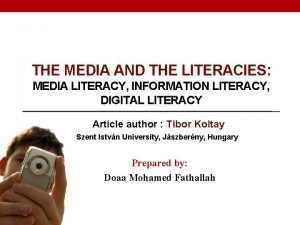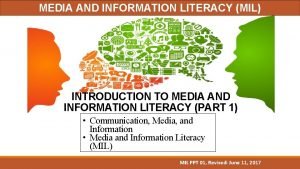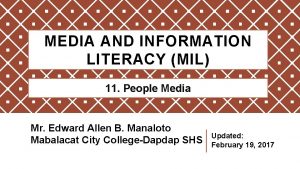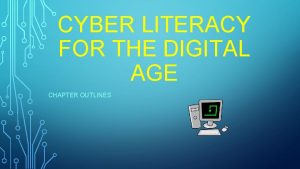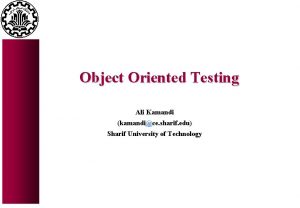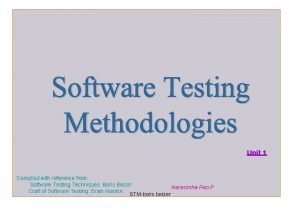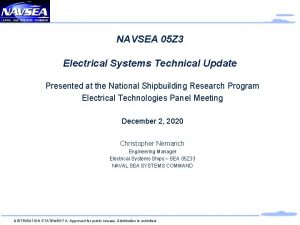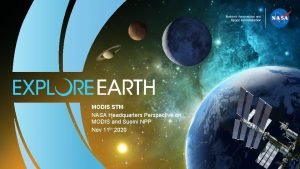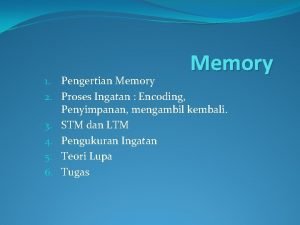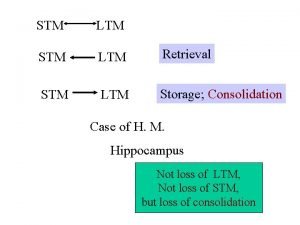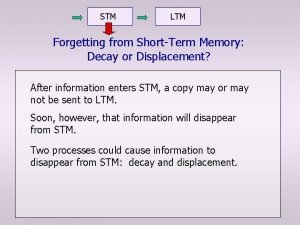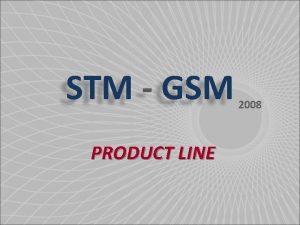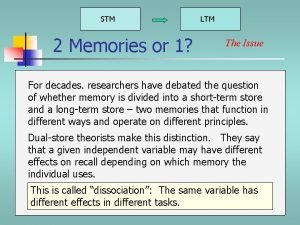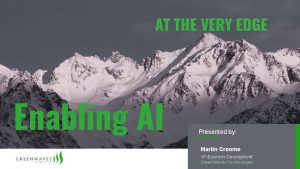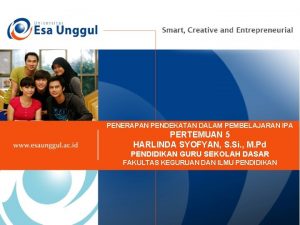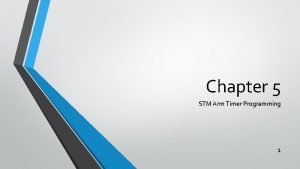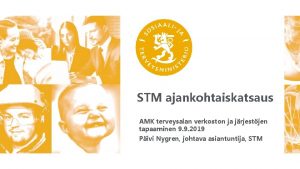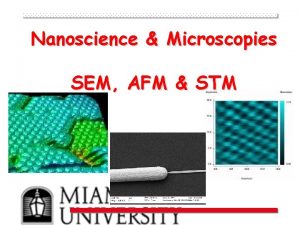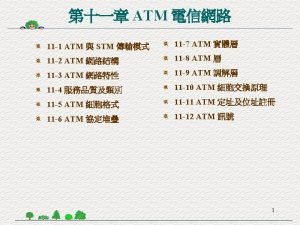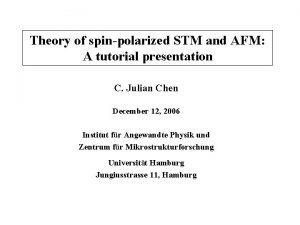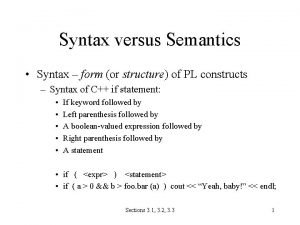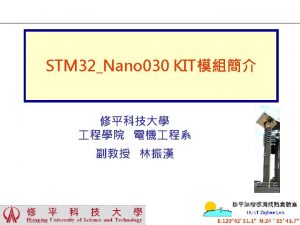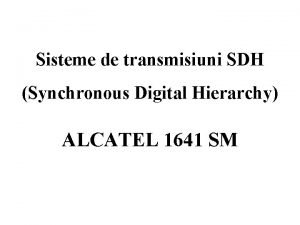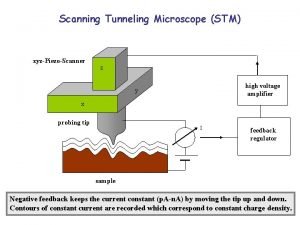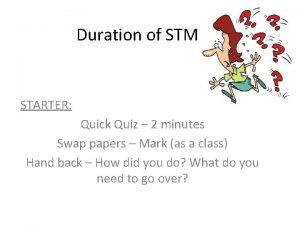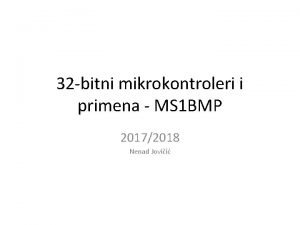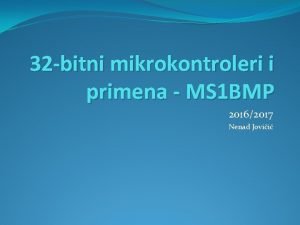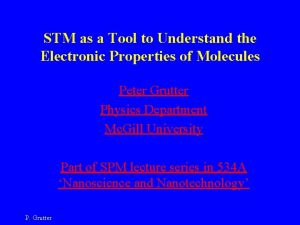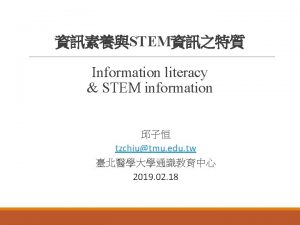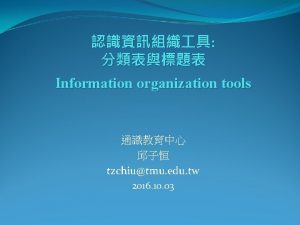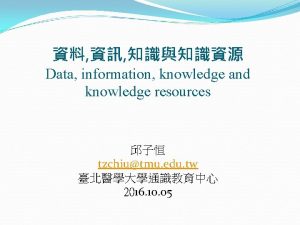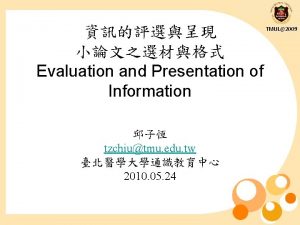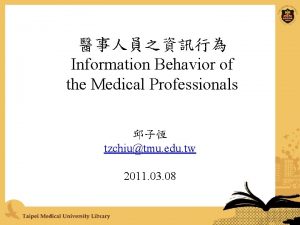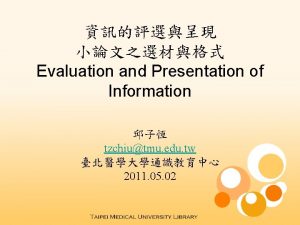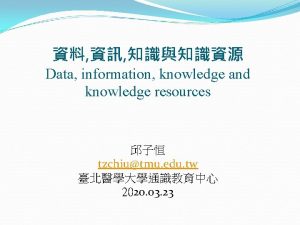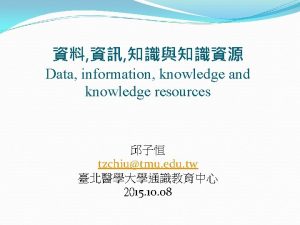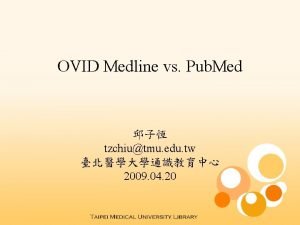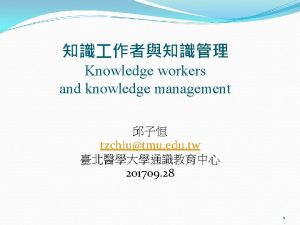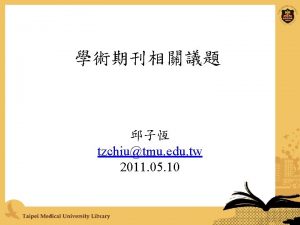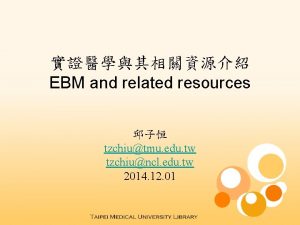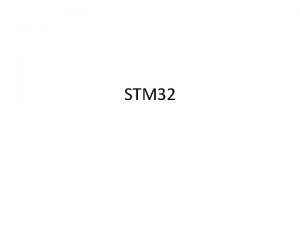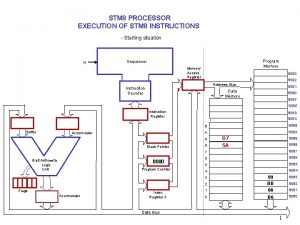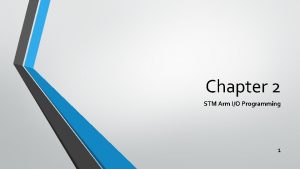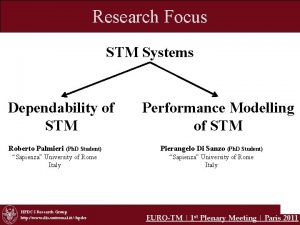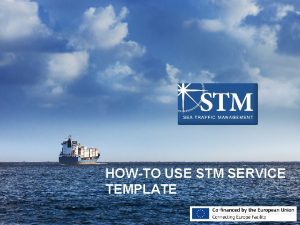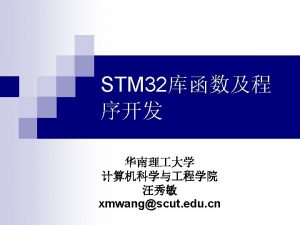STM Information literacy STM information tzchiutmu edu tw




























- Slides: 28

資訊素養與STM資訊之特質 Information literacy & STM information 邱子恒 tzchiu@tmu. edu. tw 臺北醫學大學通識教育中心 2017. 02. 20




二、文獻分析 ACRL 「高等教育資訊素養能力標準 (Information literacy competency standards for higher education)」 「高等教育資訊素養架構 (Framework for Information Literacy for Higher Education)」(2016)

資訊素養 – 擴充定義 Information literacy is the set of integrated abilities encompassing the reflective discovery of information, the understanding of how information is produced and valued, and the use of information in creating new knowledge and participating ethically in communities of learning.


二、文獻分析 在大學校園內進行資訊素養教育的五種模式 ◦ Course-related instruction ◦ Web-based Instruction ◦ Models connected with General Education Programs ◦ General Education Credit Course ◦ Library Instruction in first-year experience or first-year seminar classes









2016 Framework的觀察 Authority Is Constructed and Contextual Information Creation as a Process Information Has Value Research as Inquiry Scholarship as Conversation Searching as Strategic Exploration ◦ Knowledge practices ◦ Dispositions

Authority Is Constructed and Contextual Information resources reflect their creators’ expertise and credibility, and are evaluated based on the information need and the context in which the information will be used. Authority is constructed in that various communities may recognize different types of authority. It is contextual in that the information need may help to determine the level of authority required.

Information Creation as a Process Information in any format is produced to convey a message and is shared via a selected delivery method. The iterative processes of researching, creating, revising, and disseminating information vary, and the resulting product reflects these differences.

Information Has Value Information possesses several dimensions of value, including as a commodity, as a means of education, as a means to influence, and as a means of negotiating and understanding the world. Legal and socioeconomic interests influence information production and dissemination.

Research as Inquiry Research is iterative and depends upon asking increasingly complex or new questions whose answers in turn develop additional questions or lines of inquiry in any field.

Scholarship as Conversation Communities of scholars, researchers, or professionals engage in sustained discourse with new insights and discoveries occurring over time as a result of varied perspectives and interpretations.

Searching as Strategic Exploration Searching for information is often nonlinear and iterative, requiring the evaluation of a range of information sources and the mental flexibility to pursue alternate avenues as new understanding develops.

Knowledge Practices Learners who are developing their information literate abilities • determine the initial scope of the task required to meet their information needs; • identify interested parties, such as scholars, organizations, governments, and industries, who might produce information about a topic and then determine how to access that information; • utilize divergent (e. g. , brainstorming) and convergent (e. g. , selecting the best source) thinking when searching; • match information needs and search strategies to appropriate search tools; • design and refine needs and search strategies as necessary, based on search results; • understand how information systems (i. e. , collections of recorded information) are organized in order to access relevant information; • use different types of searching language (e. g. , controlled vocabulary, keywords, natural language) appropriately; • manage searching processes and results effectively.

Dispositions Learners who are developing their information literate abilities • exhibit mental flexibility and creativity; • understand that first attempts at searching do not always produce adequate results; • realize that information sources vary greatly in content and format and have varying relevance and value, depending on the needs and nature of the search; • seek guidance from experts, such as librarians, researchers, and professionals; • recognize the value of browsing and other serendipitous methods of information gathering; • persist in the face of search challenges, and know when they have enough information to complete the information task



 Multi-cultural literacy
Multi-cultural literacy Venn diagram about media and information literacy
Venn diagram about media and information literacy Sample of people in media
Sample of people in media Cyber literacy for the digital age
Cyber literacy for the digital age Edu.sharif.edu
Edu.sharif.edu Builder vs buyer in stm
Builder vs buyer in stm Navsea 05 tech warrant holders
Navsea 05 tech warrant holders Modis headquarters
Modis headquarters Buatlah tabulasi perbedaan antara stm dan ltm
Buatlah tabulasi perbedaan antara stm dan ltm Stm ltm
Stm ltm Stm ltm
Stm ltm Stm gsm
Stm gsm Stm ltm
Stm ltm Stm 32f7
Stm 32f7 Contoh penerapan pendekatan nilai dalam pembelajaran ipa
Contoh penerapan pendekatan nilai dalam pembelajaran ipa Stm arm
Stm arm Päivi nygren stm
Päivi nygren stm Sem block diagram
Sem block diagram Stm erp
Stm erp Atm stm
Atm stm Stm tutorial
Stm tutorial Bnf operators in stm
Bnf operators in stm Stm
Stm Vc4 sdh
Vc4 sdh Stm
Stm Duration of stm
Duration of stm Stm mikrokontroler
Stm mikrokontroler Stm mikrokontroler
Stm mikrokontroler Stm as
Stm as
